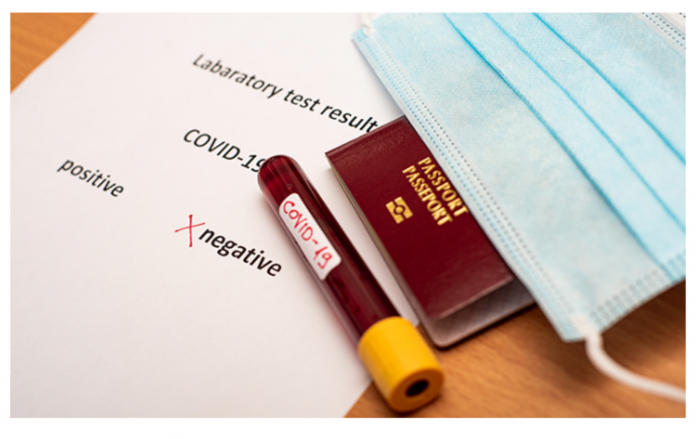As part of measures to contain the new Omicron variant, the Federal Government, yesterday, reviewed travel protocol, with an additional Polymerase Chain Reaction (PCR) test imposed on inbound travelers.
The Presidential Steering Committee (PSC) on COVID-19 directed that passengers arriving in Nigeria are now required to conduct a PCR test 48 hours before embarking on their trips, besides taking another test on day two after arrival and another on day seven. They are also expected to self-isolate for seven days.
Outbound passengers, on their part, would be required to either show proof of COVID-19 vaccination or provide a negative PCR test taken 48 hours before departure.
The measures, due to take effect on December 3, would apply to members of the diplomatic corps.
National Incident Manager of the PSC, Dr. Mukhtar Muhammad, in a statement, said there were “great concerns” that the variant could be on its way to Nigeria, considering the number of countries that have already reported cases.
He said the committee would ensure that the directives are enforced through suspension of passports of offenders or their prosecution, or both.
The Committee also revealed it would be increasing its surveillance activities at all ports of entry into the country while also intensifying testing, contact tracing, and sequencing capacity.
“One of the reasons driving COVID-19 persistence and the emergence of a new variant, Omicron, is the promotion of vaccine nationalism, which helps rich countries procure vaccines for their citizens, through direct agreements with pharmaceutical companies, while low and middle countries lag behind.
“The slower and delayed vaccination rollout in low and middle-income countries has left many of the citizens vulnerable to COVID-19 variance. It leads to new surges of infection and also slower rates of recovery,” the statement read in part.
Muhammad added that whereas most of the developed countries have already vaccinated over 60 percent and above of their populations, most developing countries are below five percent.
“You’ve just heard from NPHCDA that we’ve just vaccinated six million with only one jab. Lack of vaccination in our countries will breed fertile ground for the virus to develop mutations, which will, in turn, threaten progress already recorded. It is therefore important that the developed countries support the efforts that are being made globally to ensure that there is equity and access for vaccines,” Mohammad said.











